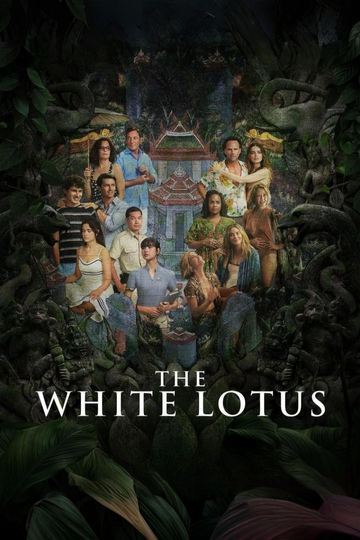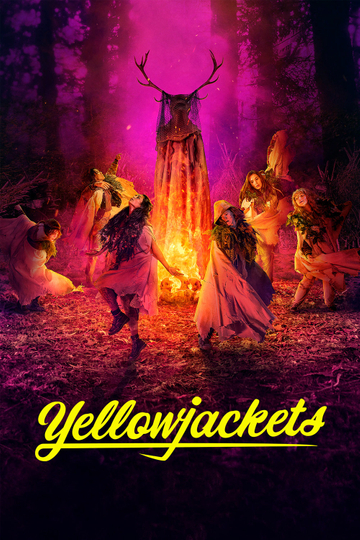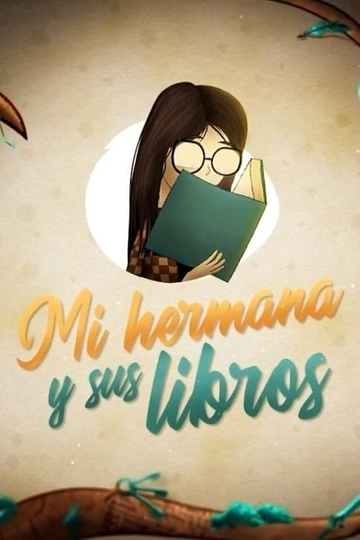Temporada 3 Episodes
1. "La casa encantada" y la búsqueda de nuestros tesoros
Sara loses the book of Greek myths that her father used to read to her and her sister when they were little, and while an angry Chío helps her look for it, Sara remembers a story by Virginia Woolf: “The Haunted House.”
2. "Los ojos de Lina" y los regalos macabros
It's Sara's birthday and, apart from giving her some terrifying ceramic eyes, Chío has prepared a story that will make her sister's hair stand on end: “Lina's Eyes” by Clemente Palma.
3. "La canción de las figuras" y el poder de la poesía
The news of a new quarantine has Chío denying once again, so to calm her down Sara decides to recite some poems from the collection of poems “The Song of Figures” by José María Eguren.
4. "El sepulturero" y el recuerdo de los que se van
It is a sad anniversary of the death of the girls' father, and since they will not be able to go to the cemetery, Sara decides to make an altar to remember him. But since Chío believes that all this is useless, he tells him a story where the dead do not want to return: “The Gravedigger” by Lastenia Larriva
5. "Los poemas de Emily Dickinson" y la ansiedad del aislamiento
It's the hottest day of summer and the girls are locked up without water, without gas and without food, so Sara remembers the story of an author who also spent a lot of time isolated from the world: Emily Dickinson.
6. "Minúsculas" y el peso de la política
It's election day, and Sara and Chío have a new confrontation: Does a vote really make a difference? To prove to her sister that she is wrong, Sara turns to a historical Peruvian figure: Manuel González Prada and his collection of poems “Minúsculas”
7. "El horla" y la parálisis del sueño
Sara hasn't been able to sleep well for days and, after playing a practical joke on her, Chío decides to tell her a story about someone tormented by nightmare creatures: “Le Horla” by Guy de Maupassant.
8. "El señor de Marbella" y la importancia de las raíces
Chío refuses to go on a trip to visit her grandmother in Áncash, so Sara decides to recite some poems to remind her of the importance of valuing our roots: “The Lord of Marbella” by Carlos Zúñiga.
9. "El tapiz amarillo y la lucha por ser escuchadas
An unexpected visit from their grandmother forces the girls to do housework tirelessly. When the grandma finally falls asleep, Sara and Chío have time to rest and the younger sister remembers the story of “The Yellow Tapestry” by Charlotte Perkins.
10. "Hombres necios" y el problema de la doble moral
A scandal in the girls' family regarding cousin Betty's new boyfriend makes them think about how men and women are judged differently in these things, and makes Sara remember a poem by Sor Juana Inés de la Cruz: “Foolish men”.
11. "La apuesta" y el valor de nuestro tiempo
Sara misses spending time with her mom, but Chío thinks she is being conceited because she has to work to keep the house. The two sisters reflect on whether it is better to have freedom or money with a story by Anton Chekhov: “The Bet”
12. Los poemas de Delmira Agustini y la pasión del enamoramiento
Sara has realized that she likes her friend Tomás and even though Chío annoys her, she tries to explain how she feels with some poems by Delmira Agustini.
13. "El solitario" de Horacio Quiroga y el punto de vista oscuro
A complaint against their cousin Felipe makes the sisters question violence against women with the help of a story: “El Solitario” by Horacio Quiroga.
14. "La ciudad de los contrastes" y los secretos de Lima
Chío will finally be able to go out again and is planning where to go with Cami, while Sara prepares her cousin Vladimir's visit with her top places to see in Lima. They both disagree about whether there is something really interesting in their city, so Sara turns to a story by Juana Manuela Gorriti: “The City of Contrasts.”
15. La tortuga ecuestre y las emociones descontroladas
It's Cami's birthday and Sara takes the opportunity to get a little revenge on Chío when she sees the care he puts into wrapping her gifts. This leads them to talk about a collection of poems where emotions are on the surface: “La Tortuga Ecuestre” by César Moro.
16. "Una esperanza i el mar" y el abrir nuestro corazón
Chío is very sad because she is no longer speaking with Cami and, so that she understands that we must give space in our hearts to the people we care about, Sara recites some poems from “A hope and the sea” by Magda Portal.
17. "Ante la ley" y el sistema de la injusticia
Their cousin Vladimir has been run over, but the culprit tried to escape, which leads the girls to wonder if justice is the same for everyone while they review the story of “Before the Law” by Franz Kafka.
18. "Apaga el control" y la lucha contra el racismo
A racist attack on the street fills Chío with rage and frustration, and so that Sara can understand everything she feels, Chío does something not typical for her: she recites the poem “Turn off the control” by Mónica Carrillo.
19. "Felicidad" y lo que se oculta bajo las sombras
The sisters' grandfather has passed away, but the saddest thing was that the other family did not let their grandmother say goodbye to him. This makes the girls question themselves about couples, infidelity, and why these things happen so often, while they review the story “Happiness” by Katherine Mansfield.
20. "La muerte de Halpyn Fraser" y el terror de la culpa
Midnight marks the arrival of the day of the dead, and while Sara prepares an offering for her father and grandfather, Chío takes the opportunity to scare her with a story where the dead return to do evil in “The Death of Halpyn Fraser” by Ambrose Bierce.
21. "Los gatos de Ulthar y el maltrato animal"
Sara has rescued a stray cat but Chío refuses to let it stay in her house, and to make her afraid of cats she tells her a strange story from H.P. Lovecraft: “The Cats of Ulthar”.
22. "Diario de la mujer es ponja" y el descubrir de nuestra identidad
23. "El sol lila" y la exploración creativa
The poetry contest is approaching and Sara doesn't have anything written. Chío tries to help her and they find a collection of poems that is not typical: “El sol lila” by Luis Hernández.
24. "Los poemas de César Vallejo" y las razones para seguir creando
Sara has given up and no longer wants to participate in the contest, Chío tries to pressure her not to let herself be defeated, so to show her that even the best can come to believe that art is useless, Sara recites some poems by César Vallejo to her.
25. "Un extraño juego navideño" y una tradición de terror
Christmas is coming, and while Sara tries to keep up the Christmas spirit, Chío thinks it's time to have a new tradition: horror stories for Christmas, so she tells her “A Strange Christmas Game” by Charlotte Riddell.























